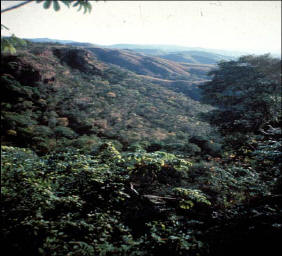|
||||||
|
Interesting Facts
Visas: Passports must be valid for at least six months from date of entry. Visas are required for tourists of many nationalities, including Australia, Canada and the USA; visas are generally for 90 days, with one extension of up to 90 days possible.
Health risks: Dengue fever, malaria, meningitis, rabies, yellow fever
Time: GMT/UTC minus 2 hours for the Fernando de Noronha archipelago; GMT/UTC minus 3 hours in the east, northeast, south and southeast; GMT/UTC minus 4 hours in the west; and GMT/UTC minus 5 hours in the far west |
|
|
Electricity: Unstandardized; mostly 110 or 120V, though some hotels have 220V; 60 Hz in Rio and São Paulo Weights & measures: Metric
Customs & Immigration
At immigration, non-Brazilians will have their passport, visa (if required) and any other immigration formalities checked.
Like most airports, the airports in Brazil have different lines for national passport holders and foreign visitors. Foreign passport holders should make sure they get their passports stamped and that they retain half of the immigration form they fill in on arrival. Visitors who miss getting their passport stamped or who lose the form will have to get clearance from the Federal Police to leave the country and – as well as being delayed – may have to pay a fine.
Customs officials normally inspect the baggage of around 30 per cent or more of incoming passengers. Besides clothing and personal effects, tourists entering Brazil may bring in one of each of the following items: radio, tape/CD player, typewriter, notebook computer, movie and still camera.
When to Go
Most of Brazil can be visited comfortably throughout the year, it's only the south - which can be unbearably sticky in summer (December-February) and non-stop rainy in winter (June-August) - that has large seasonal changes. The rest of the country experiences brief tropical rains throughout the year, which rarely affect travel plans.
During summer (December-February) many Brazilians are on vacation, making travel difficult and expensive, and from Rio to the south the humidity can be oppressive. Summer is also the most festive time of year, as Brazilians escape their apartments and take to the beaches and streets. School holidays begin in mid-December and go through to Carnaval, usually held in late February.
Events
Although there are festivals taking place all year-round in Brazil, the country's most famous event is Carnaval, beginning at midnight on the Friday before Ash Wednesday and lasting for five days. It is celebrated all over Brazil and there are more authentic versions than the glitzy tourist drawcard held in Rio, but Rio's is a fantastic spectacle nonetheless. In the sambódromo, a tiered street designed for samba parades, the Brazilians harness sweat, noise and mayhem as the 16 top samba schools each have their hour of glory.
The four-day Carnival commences on the following dates: March 1 2003; Feb 21 2004; Feb 5 2005. |
|

